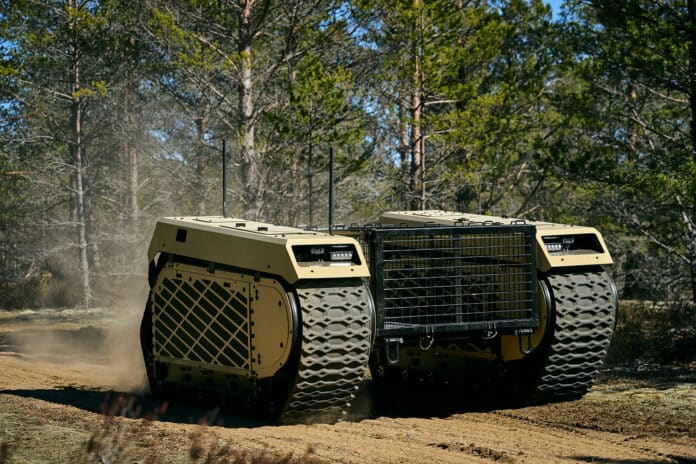Milrem Robotics’ unmanned ground system THeMIS equipped with the company’s intelligent functions kit MIFIK, excelled at comprehensive first-of-its-kind autonomy trials organized by the Estonian Military Academy.
Successful testing of autonomous ground robots took place last week under the leadership of the Estonian Military Academy and the supervision of defense and autonomy specialists from Finland, Germany, the Netherlands, Norway, Sweden, and the United Kingdom.
At the Estonian Defence Forces central training area, Milrem Robotics’ intelligent ground system was put to the test throughout increasingly complex scenarios for two days. The scenarios included driving on dirt roads, small forest roads, open fields with and without high vegetation, and in the forest with moderate to severe density.
During the tests, observers from the abovementioned countries evaluated the elements needed to navigate on the road autonomously, off-road, and in a dense forest – route planning, point-to-point movement, and obstacle avoidance. The tests evaluate the technological readiness of dual-use unmanned ground systems and human-machine cooperation.
“During the two days, we showcased a really mature autonomous system that is capable of handling very complex environments, succeeding even in the densest forest. Autonomy is a crucial and integral part of unmanned ground systems, especially on the battlefield, since it frees up manpower for other tasks and allows soldiers to concentrate on fulfilling their mission rather than operating vehicles,” said Kuldar Väärsi, CEO of Milrem Robotics.
The highly anticipated autonomy trials witnessed the participation of 11 skilled developers specializing in Robotic Autonomous Systems hailing from nine different nations, attracting a diverse array of visitors from nearly 20 countries. The event was partially funded by the Milrem Robotics’ led EDIDP integrated Modular Unmanned Ground System (IMUGS) project and included the project’s autonomy team as a participant.
